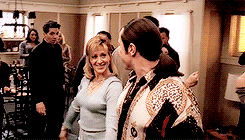malelesbian
Femboyism IS feminism.
Everytime I bring this question up, people here ignore it. Thus I think it warrants its own topic.
Where is the love in internet culture? We barely have a sense of camaraderie among ourselves, let alone romance.
Internet culture accelerates social atomization. On the internet, everyone is an individual defined entirely by their production and consumption. The community never comes into play.
Is Dissensus a community, or just a group of individuals? Are there shared values that unite Dissensus users or are we all just bumbling around doing our own thang?
Once we see ourselves as atomistic individuals, everything we do becomes all about self-improvement. Hence the manosphere. Men will accept almost any kind of self-improvement, even if it carrys along awful misogyny. I guess a lot of men care about themselves more than women, and that's a huge problem that male lesbianism solves. Because the male lesbian promotes altruistic culture.
I prescribe romance as a remedy to the manosphere's toxic hypermasculinity.
There's even brotherly love. I include that within romantic culture.
Love brings people together. Selfishness tears them apart. The irreducible relationality of love entails that love always includes oneself and another. Of course, there's also self-love, but I'm not discussing that. I'm discussing love that relates atleast two people together.
We're all rather socially isolated here. I keep returning to the same theme: we should build communal bonds by reaching out to each other in a sensitive way.
Read Shelley! Read Keats! Read all the Romantics, (except Lord Byron who was very unlike male lesbians)! Be romantic because it challenges the egoistic lies redpillers spread. Romance is feminine is non-phallic culture.
Where is the love in internet culture? We barely have a sense of camaraderie among ourselves, let alone romance.
Internet culture accelerates social atomization. On the internet, everyone is an individual defined entirely by their production and consumption. The community never comes into play.
Is Dissensus a community, or just a group of individuals? Are there shared values that unite Dissensus users or are we all just bumbling around doing our own thang?
Once we see ourselves as atomistic individuals, everything we do becomes all about self-improvement. Hence the manosphere. Men will accept almost any kind of self-improvement, even if it carrys along awful misogyny. I guess a lot of men care about themselves more than women, and that's a huge problem that male lesbianism solves. Because the male lesbian promotes altruistic culture.
I prescribe romance as a remedy to the manosphere's toxic hypermasculinity.
There's even brotherly love. I include that within romantic culture.
Love brings people together. Selfishness tears them apart. The irreducible relationality of love entails that love always includes oneself and another. Of course, there's also self-love, but I'm not discussing that. I'm discussing love that relates atleast two people together.
We're all rather socially isolated here. I keep returning to the same theme: we should build communal bonds by reaching out to each other in a sensitive way.
Read Shelley! Read Keats! Read all the Romantics, (except Lord Byron who was very unlike male lesbians)! Be romantic because it challenges the egoistic lies redpillers spread. Romance is feminine is non-phallic culture.



